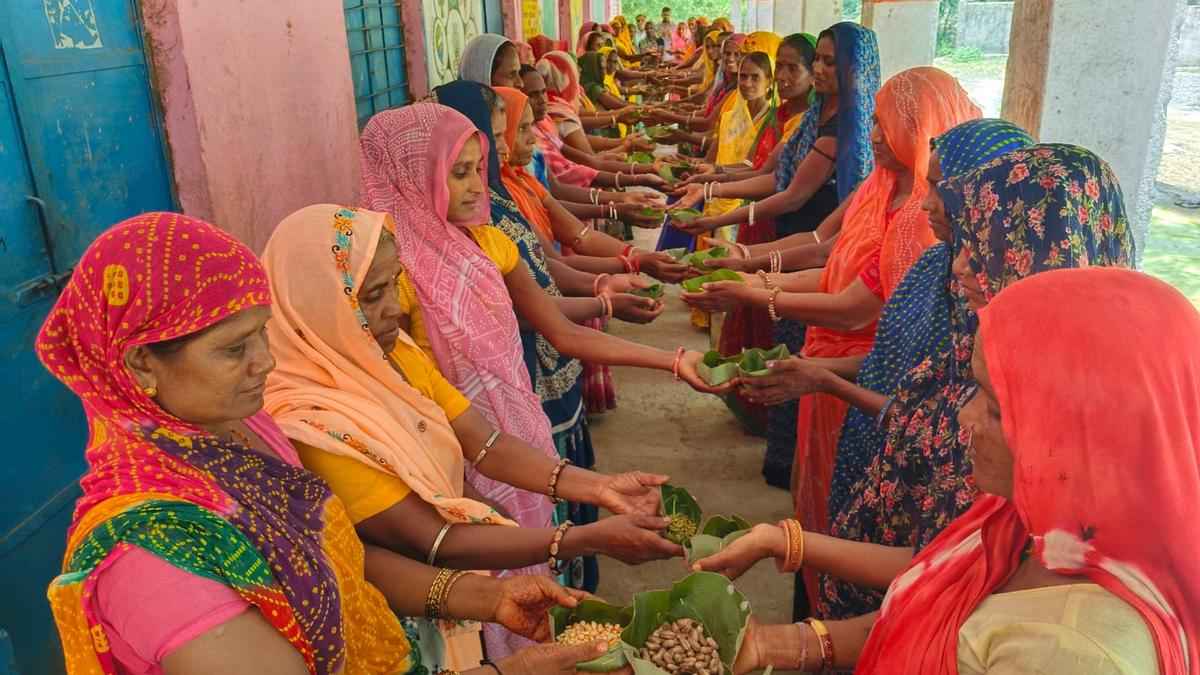At the confluence of Rajasthan, Madhya Pradesh, and Gujarat, a unique four-day celebration unfolded — Beej Utsav — a festival dedicated to the vital role of indigenous seeds in shaping a sustainable future for agriculture. Drawing over 9,400 tribal participants, this vibrant event was more than a festival — it was a movement to revive traditional seed knowledge and promote climate-resilient farming.
Why Indigenous Seeds Matter
Indigenous seeds are the backbone of biodiversity. Unlike commercially available hybrid seeds, they are inherently suited to local soils, climates, and ecological conditions. These traditional varieties require minimal chemical inputs, making them both eco-friendly and cost-effective. Beej Utsav proudly displayed rare and ancient seed varieties, from wild mango seeds to Doodh Mogar maize, reminding everyone of the rich genetic legacy hidden in native crops.
Engaging the Community: Learning Through Celebration
The Utsav was rich with educational and interactive activities designed to spark awareness and participation. Highlights included:
- Beej Samvad (seed dialogues) that encouraged knowledge sharing among farmers.
- Biodiversity fairs showcasing heirloom seeds and traditional crops.
- Seed ball making workshops, teaching conservation techniques in hands-on ways.
- Plantation drives aimed at enhancing local green cover and promoting eco-consciousness.
Outstanding farmers were honoured for their commitment to preserving seed diversity, reaffirming the value of community efforts in sustainable agriculture.
Empowering Grassroots Institutions
The success of Beej Utsav was made possible by the efforts of grassroots organisations like Krishi Evam Adivasi Swaraj Sangathan and Vaagdhara. These groups work closely with tribal communities, advocating for sustainable farming systems rooted in local knowledge. Their leadership in the event underscored the effectiveness of community-led agricultural innovation.
Rethinking Modern Farming Practices
Modern agricultural models often push small farmers towards dependency on costly hybrid seeds and chemical-intensive methods. This not only burdens farmers financially but also harms the environment and long-term soil health. Beej Utsav served as a powerful reminder of the need to reclaim seed sovereignty — the right of farmers to save, use, and exchange their own seeds — and to resist unsustainable market pressures.
Looking Ahead: A Return to Our Roots
The discussions and reflections at Beej Utsav signaled a growing interest in returning to cultural and ecological farming practices. Participants voiced a collective aspiration to reconnect with ancestral knowledge systems and promote food security through native seeds. By embracing indigenous seed varieties, the future of farming could become more resilient, inclusive, and in harmony with nature.




